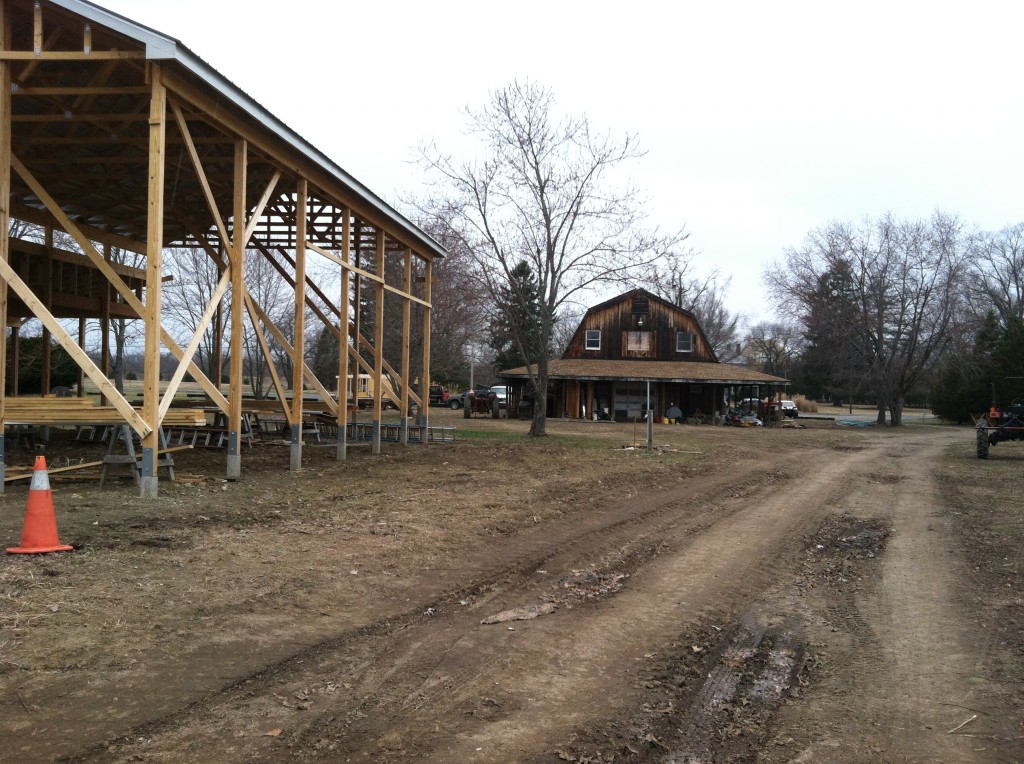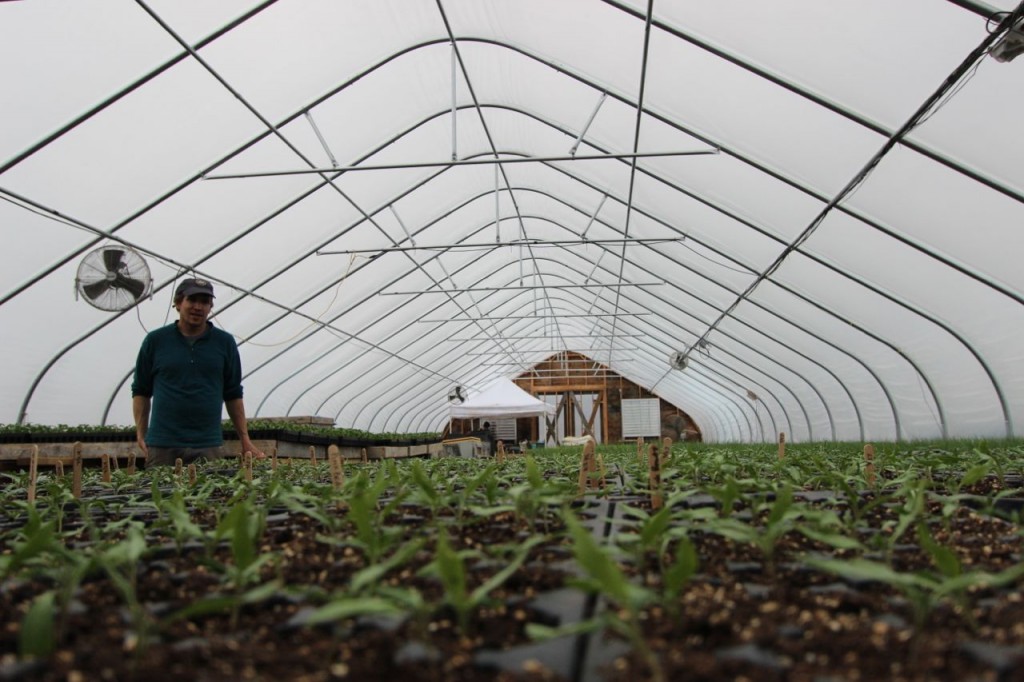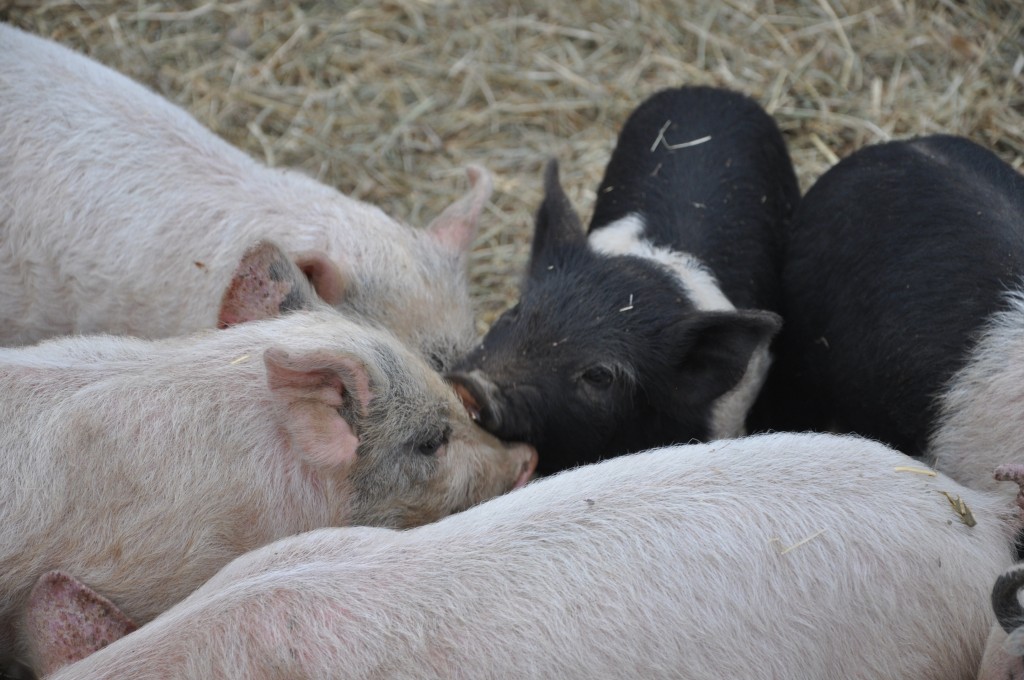Last Friday we went to see our first vegetable farm. Hearty Roots, an organic CSA farm, approaches farming in a manner that feeds the soil rather than the plant, according to Ben Shute, one of the farm’s founders. We met Ben outside in a light afternoon drizzle as he told us their journey from a one-acre mobile production to an established seventy acre farm in just ten years. Unlike many farmers, Ben didn’t grow up on a farm but became interested in farming after getting a liberal arts degree at Amherst College. He worked part-time in Oregon for a time and ten years ago decided to start his own organic farm and work full-time. Aptly naming the farm Hearty Roots, Ben and his wife Lindsey chose to follow a CSA, or Community Supported Agriculture, model in an attempt to avoid financial exploitation from the bank or agricultural corporations, an issue many farmers struggle with. In the CSA model, members of the community invest in shares of the farm’s produce, paying a flat rate for a portion of whatever the farm can grow that year. This way, during bad years the farmer doesn’t lose capital because they are supported by the community, not a loan they have to pay back, and during good years the community benefits by getting more bang for their buck. Their first year Ben and Lindsey sold shares to friends and family and did everything themselves and by hand. Ben said it was the perfect time to get into CSA farming, as there was a lot of growing interest in the community. Hearty roots double in size every year, and currently they now grow for 200 families and employ ten people year-round.
Ben took us inside some of the greenhouses where they were growing sprouts for the planting season, where we were welcomed by fresh oxygenated air and shelter from the ensuing downpour. There Ben described the process of organic farming, saying, “running a sustainably diverse farm requires your mind to be in fifty places at once.” He said how in order to be successful organic farm you have to be in it for the long run. Most of the effort goes into making the soil healthy and sustainable, which takes time. Before Ben owned the land they currently grow on they were able to cheaply rent land from other farms, but the investment they put into the soil really started to pay off once they were able to grow on a permanent location. Over the course of a year, Hearty Roots grows around fifty kinds of vegetables, many of which do more than just get harvested. In the winter Ben plants barley and other cold-weather crops which continue to put nutrients into the fields during the non-growing season. In early spring he described a specific type of radish they plant that affects the soil in a way similar to plowing, reducing their labor. During the main growing season, Hearty Roots uses natural pesticides and plants particular flowering crops to attract predatory insects that eat the numerous pests that plague crops, rather than using unhealthy pesticides and chemicals. Ben told us that many of these practices are not traditional but have been recently discovered through scientific research. In this way Hearty Roots is using cutting-edge techniques in order to make organic farming a more feasible venture. They also raise chickens and are currently experimenting with raising pigs to help nourish the land they grow on. The pigs were also pretty adorable.
Ben is also the founder of the National Young Farmers Coalition, a movement for farmers to support each other via lobbies to change harmful policies as well as a forum to share information. Farmers, small and large scale alike, are generally taken advantage of, and the coalition works to change that. Ben also emphasized the importance of being close to one’s customers on the small farming scale. Being close to a population center like New York City has helped Hearty Roots build a more robust customer base, and the benefits go both ways. Ben has experienced that what people seem to want is a connection to their food—a story or some kind of meaning—and CSA farming can bring them that. We certainly felt the effort that Hearty Roots puts into connecting to people about the importance of quality organic produce, and that effort has certainly paid off.
To learn more about Hearty Roots, check out their website here!


